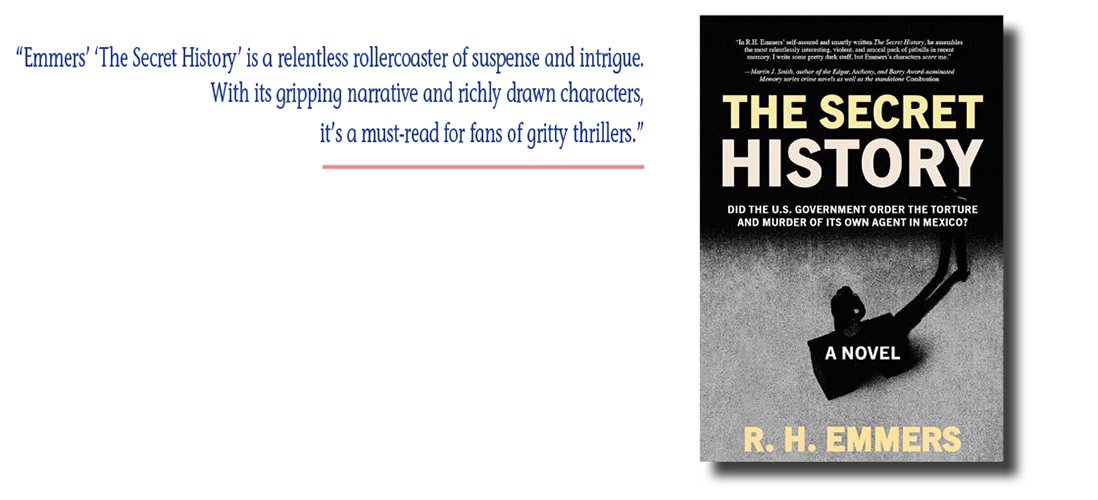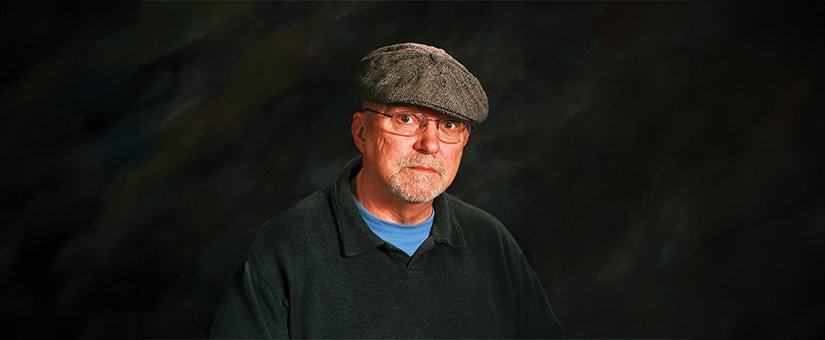A Journey Through Action, Mystery, and Imagination
Robert Emmers, from journalism to private investigation, now explores fiction. His stories blend action with existential themes, reflecting his diverse experiences.
BY DAN PETERS
Robert Emmers is a man of many stories, both lived and imagined. As a teenager, he dreamt of Paris and writing, but practicality steered him into a journalism career. The path was anything but dull. Emmers’ professional journey took him through the gritty worlds of private investigation, insurance fraud detection, and crisis communications, each role offering a wealth of experiences that now fuel his fiction. Emmers’ adventures range from evading federal subpoenas to being threatened by mob figures, from chasing fugitives to surveilling rogue priests.
Now residing in the serene woods of northwest Pennsylvania with his wife and dog, Emmers has returned to his original passion: writing fiction. His stories are imbued with the thrill of his past escapades and the disciplined, concise writing style honed in newsrooms. Emmers’ latest work, The Secret History, and his captivating short story, Where Did All the Dentists Go? are testaments to his ability to weave action-packed narratives with existential undertones.
In this exclusive interview with Reader’s House Magazine, Robert Emmers reflects on how his eclectic career has shaped his storytelling, explores the inspirations behind his dark and complex themes, and discusses his journey back to fiction. Join us as we delve into the mind of a writer who has lived the adventures most only read about, and now brings that same sense of excitement and discovery to his readers.
R. H. Emmers, your career has spanned journalism, insurance fraud investigation, crisis communications, and now fiction writing. How have these diverse professional experiences influenced your storytelling and writing style?
I’m a simple guy, so a simple answer: ala Papa Hemingway, as a newspaper reporter I learned to write cleanly and concisely. That carried over into my fiction writing. But it’s not the whole truth. As an investigator, I came to love action, chasing down a fugitive or fraudster and confronting him. And that has had an even greater influence on my writing of fiction: There’s always action.
The Secret History delves into the world of government death squads, crime, and vengeance. What inspired you to explore such dark and complex themes in your fiction debut?
I once wrote a novel (which remains unpublished because it was total crap) featuring a character named Dahl who finds himself in situations inspired by my work in crisis communication: I was mostly a fixer, and mostly on the streets rather than writing talking points and so forth. One day I decided to resurrect Dahl in a short story; by accident, it grew and became a novel, The Secret History. It’s set mainly in Mexico because I love Mexico. And some of the scenes in the novel are based on my own experiences as a fixer, but even more so by my imagination. But, as I say, it was an accident.

Robert Emmers captivates with thrilling narratives, drawing from a life rich in adventure. His writing
transcends boundaries, immersing readers in vivid, unconventional worlds.
Where Did All the Dentists Go? presents a surreal and mysterious tale set in the village of M… What inspired the creation of this intriguing story, and what themes were you exploring through its narrative?
As with all my short stories, Where Did All The Dentists Go began when a first line magically appeared to me. At first, it was going to be an exploration of a weird relationship. Then one day I happened to read about johatsu, the Japanese phenomenon of people leaving their lives and disappearing. Viola, the story bloomed from there. I don’t consciously worry about theme. But if there has to be an over-arching theme in my writing it’s that you always keep moving, forward, backward, whatever, just don’t let them catch you.
Your protagonist in Where Did All the Dentists Go? embarks on a journey of discovery in a seemingly ordinary yet enigmatic village. What parallels, if any, do you see between the protagonist’s search for answers and your own journey as a writer returning to fiction writing?
My life has been an exploration. Probably that’s why I’ve had so many different (and always fun) careers. The idea of exploration carries over into my fiction. Every character is looking for answers. For example, in The Secret History, all of the main characters are pretty despicable. But what makes them interesting to me is that they’re all looking for answers, of one sort or another.
Throughout your writing, there’s a sense of mystery and existential questioning. How do you balance crafting intricate plots with delving into deeper existential themes in your storytelling?
First, I prefer writing short stories rather than a novel. This is because I feel freer with the short story form, 5,000 words or so vs. 80,000 or more. One reason for this, I think, is the shortness itself: It’ll be over soon, for good or bad, so don’t worry about it and let the imagination roam. Just the thought of writing another novel makes me want to go back to bed. So, I’m working on a series of linked stories for my next book. But as to short stories: A line pops into my head and I write it down and that is the beginning of the story. Then the story goes where it wants to go, and the plot reveals itself. But in my experience a novel is different. It must be constructed bolt by bolt. So, I do write something of an outline beforehand laying out who does what to whom and so on: Everything has to connect. But that outline often goes out the window as characters take charge. As far as existential themes? I don’t worry about themes in short stories; the story becomes what it wants to be. A novel is different, for me anyway. The theme I like best is seeking redemption and moving ahead.
Your writing often features unconventional settings and characters. What draws you to explore these unconventional elements, and how do you approach creating immersive and compelling fictional worlds for your readers?
I like writing about drunks, screw-ups, dopers and strange people caught in strange situations. Why? Probably because, even though I’ve had interesting jobs that involved plenty of interesting situations (I should tell you about the time my newspaper partner and I drove around one weekend with all our files dodging a federal subpoena) my life as a writer is pretty conventional: Wife, dog, house. So, of course, I like crooks and weirdoes. Am I compensating for my current life chained to a desk? Probably, but at least when I’m writing I can be a crook or a weirdo. The thing is, when I’m writing, if I’m really into it on any particular day, the world I’m writing about becomes real. So, yeah, I’m compensating.



